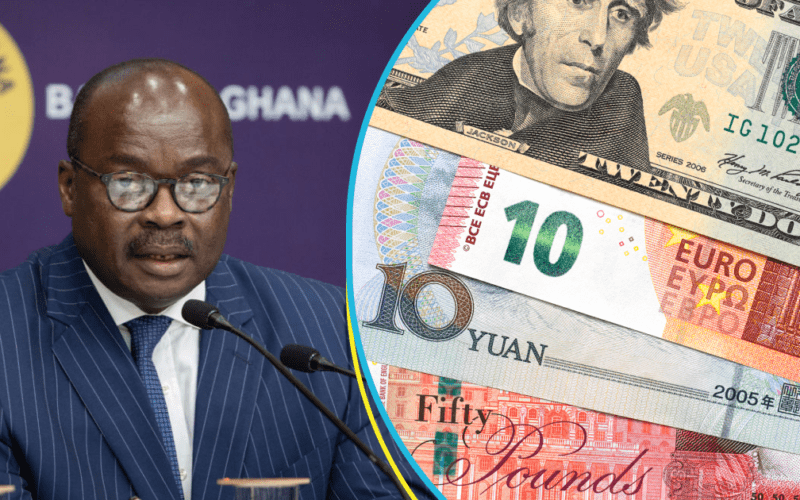In a recent development aimed at tightening the reins on the foreign exchange market, Ghana’s Central Bank has wielded its regulatory authority, temporarily suspending the foreign exchange licenses of two major players: Guaranty Trust Bank and FBN Bank. The suspension, effective from March 18, is a decisive move following the Bank of Ghana’s clampdown on eight money transfer organizations (MTOs) three months ago, barring them from offering remittance services without proper regulatory approval.
The suspension aligns with the provisions of Section 11 (2) of the Foreign Exchange Act 2006, granting the Bank of Ghana the authority to temporarily suspend a license rather than opting for its outright revocation.

According to an official statement released by the apex bank on Monday, the two banks were found culpable of various violations of foreign exchange market regulations. These breaches included the submission of fraudulent documentation in their forex operations, prompting the Central Bank’s decision to suspend their foreign exchange licenses for a duration of one month.
Guaranty Trust Bank responded promptly to the suspension, issuing a statement on Tuesday. The bank assured its clientele that all other aspects of its business remained unaffected by the regulatory action. The suspension, as clarified by the bank, exclusively pertained to its foreign exchange segment. The statement emphasized an active collaboration with the Bank of Ghana to swiftly address the trade-related issues leading to the suspension.
In the statement, Guaranty Trust Bank Ghana underscores its dedication to cooperation and collaboration, seeking to resolve the concerns raised by the Central Bank in a timely manner. Importantly, the bank emphasizes that the suspension, although impactful on its foreign exchange trading segment, has no bearing on customers’ deposits and other integral business segments.
Navigating Foreign Exchange Regulatory Turbulence: Guaranty Trust Bank Ghana’s Response and Commitment
Customers can find solace in the assurance that all other products and services, spanning main branches, agency banking outlets, mobile apps, and internet banking, remain fully operational and available for their use. Guaranty Trust Bank Ghana is keen on maintaining business continuity and delivering uninterrupted services during this challenging period.
As the bank navigates through these regulatory challenges, its commitment to transparency, collaboration, and customer satisfaction remains steadfast. The ongoing collaboration with government agencies signifies a proactive approach to address the concerns raised, fostering trust and confidence among stakeholders. Guaranty Trust Bank Ghana’s resilience in the face of regulatory hurdles reflects its dedication to maintaining a strong and trustworthy financial ecosystem for its customers.
The regulatory move aligns with Section 11 (2) of the Foreign Exchange Act 2006, granting the Bank of Ghana the authority to suspend licenses for a specified period rather than opting for outright revocation.
The Central Bank conveyed that the affected banks could see the reinstatement of their foreign exchange licenses after one month if they demonstrated the effective implementation of controls to ensure strict compliance with regulations. Additionally, a stern cautionary note was directed towards other financial institutions, urging strict adherence to forex market regulations and guidelines.
This regulatory stance by Ghana’s Central Bank echoes similar actions in the region. Notably, the Central Bank of Nigeria took stringent measures last week by revoking the licenses of over 4,000 Bureau De Change operators (BDCs). Their failure to meet regulatory obligations, including fee payments, submission of returns, and compliance with anti-money laundering and terrorism financing regulations, led to the unprecedented move. The financial landscape in West Africa is evidently undergoing a recalibration, with regulators taking assertive steps to ensure compliance and integrity within the foreign exchange sector.





